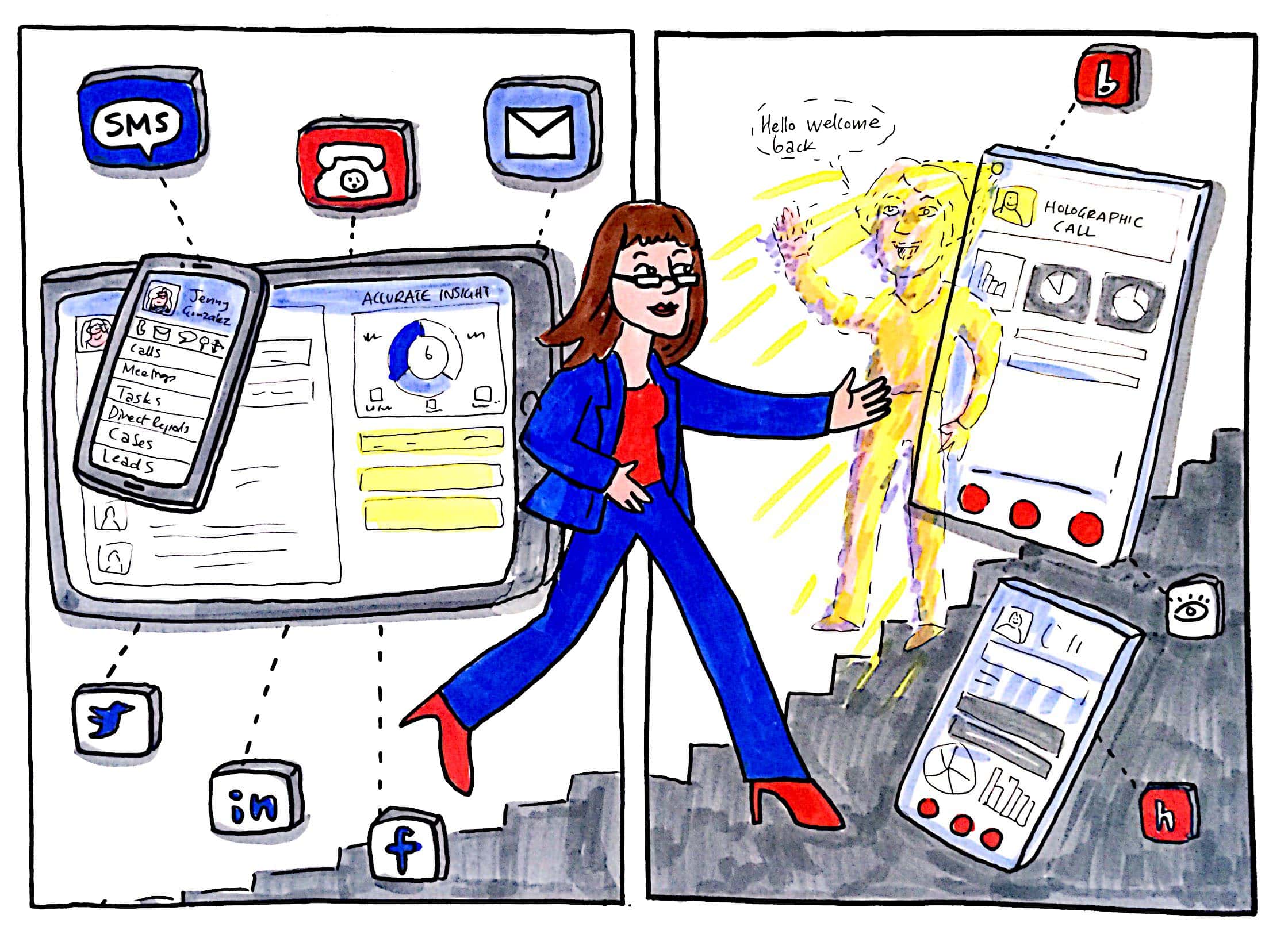7 Tricky Questions to Ask Before Choosing a CRM
We only need to take a quick glance at global politics to realize how important it is to prepare for radical change and disruption.
Smart organizations are gearing up to respond to challenges we can’t yet imagine, and staying ready to evolve in a fast-moving global marketplace. This is exciting to witness.
But, we get the feeling that plenty of companies are still making technology choices based on what the herd is doing. Whilst this might offer a short-term feeling of safety, it’s just not the wisest course of action at such a challenging, disruptive time. Almost every industry is brutally competitive, consumers are empowered, and brands won’t be rewarded for mediocrity.
Technology will either enable or inhibit your business strategy. The best way to avoid being constrained by technology choices somewhere down the road, is to do some serious thinking (and in some cases, re-thinking) upfront. The question is, do you know what constraints to look for and how to avoid them?
We recently wrote an article about CRM choices. It suggests (and helps answer) a handful of questions to ask yourself before you decide on a CRM:
1) Do you really want to get on the bus?
This is an obvious but effective metaphor – choosing big name, proprietary software is like getting on a bus: you can’t deviate from the route and you get one-size-fits-all pace and service.
2) Should you choose your own ride?
If you want technical and functional flexibility, you should be able to run the CRM of your choice on your own choice of infrastructure. This means a public cloud of your own choice, private cloud, within your own country’s borders, on-prem and a hybrid combination of all these should be on the table. The bottom line is that the organization should have the freedom to implement the systems and architectures that best address their needs for security, regulatory compliance, and data integration.
3) Will you get what you really want?
Some CRM solutions are designed to stay uniform and closed, to make things easier for the CRM vendor at the expense of innovation and flexibility that helps your business. But shouldn’t your CRM adapt to fit into your organization, not the other way around?
4) How important is change to you?
Most CRM vendors cash in by setting up costly barriers to change (commonly called vendor lock-in). However, anticipating, and being open to, technical and cultural change is the one thing we need to weave into business strategy these days. Think carefully about the potential costs of change that aren’t made clear up front.
5) Is this all about you?
Many traditional CRM providers have branched out through acquisitions and grand ambitions. They have become too busy to provide the kind of service and attention you’ll want from a true business partner. Perhaps it’s a good idea to choose a partner who is 100% focused on the core CRM features that help your employees become better at their jobs and shares your passion for building relationships with customers.
6) Are you looking at the ticket price, or the whole cost of being a passenger?
Over time, you’ll want to evolve and improve your CRM. With inflexible solutions, any deviation from the status quo tends to rack up costs. So, make sure you work out how much you’ll be charged when you want to do things like add more users, extend CRM to mobile devices or use more data.
7) Do you want to invest in the destination or pay for the ride?
With status quo CRM, you pay just to get on the bus with everybody else. However, by breaking away from the status quo, you can empower employees to offer a different (and better) customer experience.
We hope these questions will help you think twice about getting on the bus!
(For the record, we’ve got nothing against public transport. In fact, we love it. This is just a little metaphor brought to you by SugarCRM).


